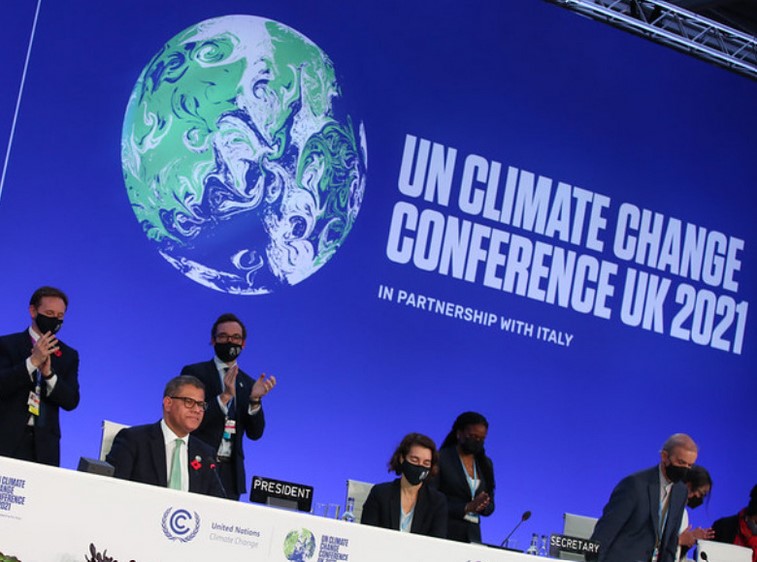
For nearly three decades, the UN has brought together almost all countries on earth for global climate summits – called COPs – or “Conference Of the Parties”. Since then, climate change has gone from being a fringe issue to becoming a global priority.
COP 26 (delayed by one year due to the pandemic) was held in Glasgow, Scotland, from 31 October to 12 November, a twelve-day negotiation, which was attended by 196 world leaders, flanked by tens of thousands of negotiators, representatives of government, business and citizens to reach agreement on how to tackle climate change.
Most experts agree in underlining the extraordinary and urgent nature of COP26: this was not just any international summit, because the COP21 agreements were revised.
COP21 was held in Paris in 2015 and led to the adoption of the Paris Agreement by member states, the first universal and legally binding agreement on climate change.
The EU ratified the Paris Agreement on 5 October 2016, thus allowing its entry into force on 4 November of the same year. The Paris Agreement was a fundamental step in safeguarding the environment.
These are its main objectives:
Reduction of emissions
Aim to contain the average increase in world temperature within 1.5 ° C
Transparency and accountability worldwide
Adaptation to the impacts of climate change
Continuous and consistent international support to developing countries
Cooperation and mutual support in addressing losses and damage associated with the negative effects of climate change
Definition of the role of cities, regions and local authorities
Maintenance and promotion of both regional and international cooperation
Mobilization of 100 billion dollars a year by 2020.
Extension until 2025 to support developed countries.
Countries presented themselves at the Glasgow summit with updated plans to reduce their emissions. Unfortunately, the commitments made in Paris have proved insufficient to limit global warming to 1.5 degrees, and the window for achieving this goal is closing: the decade up to 2030 will be crucial.
The negotiations led to the adoption of the Glasgow Climate Pact, considered disappointing by some observers and by others the best attainable compromise.
For the first time in the conclusion of the COP, an explicit reference was introduced to the reduction of coal consumption, whose emissions represent almost 40% of the CO2 emitted on a global scale. This is the most important commitment in the fight against climate change.
In the final session, India obtained the inclusion of an amendment that softens the text on coal, dampening the effectiveness of the commitment made. We no longer speak of phase-out (gradual elimination), as originally proposed, but of phase down (gradual reduction)
Greta Thunberg and Friday’s for Future activists believe that the COP26 results are “even more vague than usual, stating that they have managed to water down the blah blah blah. In an interview with the BBC a few days after the conclusion of the Glasgow climate summit, Greta said: “Unfortunately it ended as I expected. There are many small steps forward, but the document can be interpreted in many ways. It’s very, very vague. We can still expand the fossil fuel infrastructure, we can still increase global emissions. It is very vague indeed and, even if we may have made some small progress, we must remember that the climate crisis is a matter of time, it is an accumulative crisis, and as long as we take small steps we lose ”.
As Europe and the US celebrate the Glasgow agreement, agreeing that COP26 is the moment when humanity has finally taken climate change seriously, experts and former diplomats warn: that it is not enough to start working immediately for COP27!